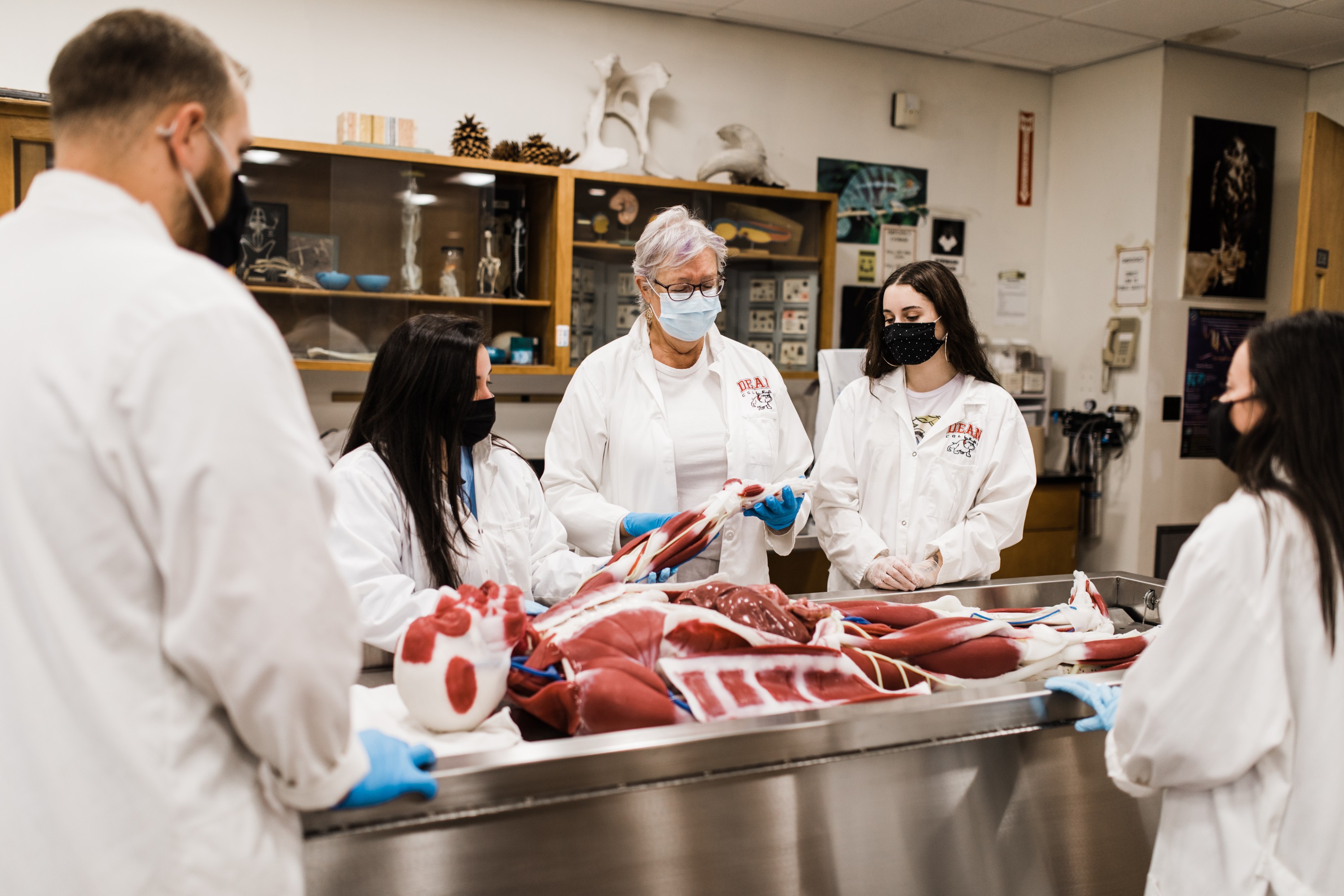Funding and programming that improves the quality of your education at Dean College.
About Funding
Throughout the years, Dean College has been awarded with funding for several programs that have a great impact on our students. Recent grants funding has been provided by the Massachusetts Life Sciences Center (MLSC), the National Endowment for the Humanities (NEH), the Davis Educational Foundation, and the Department of Justice’s Office on Violence Against Women.
Massachusetts Life Sciences Center Grant
In February 2017, the Massachusetts Life Sciences Center (MLSC) awarded Dean College with a $297,030 grant for the purchase of lab equipment to improve the quality of education and meet existing local life sciences workforce needs.
The award was part of MLSC's Competitive Capital Program, which is designed to provide grants for capital projects that support the life sciences ecosystem in Massachusetts by enabling and supporting life sciences workforce developing and training, research and development, commercialization and/or manufacturing in the Commonwealth.
This grant funding enabled Dean College to purchase basic biology laboratory equipment, which has significantly improved the quality of all students’ education, as all Dean students must take a minimum of two science courses.

National Endowment for the Humanities Grant
In August 2017, Dean College was among 245 recipients that received a total of $39.3 million in grants from the National Endowment for the Humanities (NEH) aimed at supporting vital research, education, and public programs in the humanities. This is Dean College's first grant application submitted and award received from NEH.
With this funding, College faculty have developed two courses in the history of science that incorporate hands-on labs: History of Science and Beyond Henrietta Lacks: Race and Medicine in 20th Century America. Both courses are set to pilot for the 2018-19 calendar year.
Project Director and Associate Professor of History at Dean College, Dr. David Dennis spearheaded the development of the courses, alongside Project Co-Director, Dr. Jessica Pisano, as well as Dr. Rob Lawson, who will teach the course on race and medicine.
“Culture shapes science, and science shapes culture,” said Dennis. “From early ideas about the Earth’s place in the cosmos to popular attitudes toward climate change and cancer treatment, the humanities are essential for how we understand the past and present of modern scientific society. This project furthers the ongoing revitalization of the humanities for the twenty-first century at Dean College and beyond. The opportunity to combine history courses with lab science underscores Dean’s record of educational innovation. I look forward to working with science and humanities faculty, as well as external scholars, to bring this groundbreaking curriculum to our students.”
Visit the Humanities Grant web page for more information.
Davis Educational Foundation Grant
In early 2019, Dean College was awarded $180,150 from the Davis Educational Foundation. The grant will support the creation of the Dean Career Advantage (DCA), a robust, connective four-year framework that integrates career preparation with the curriculum and co-curriculum.
The project recognized the need for formalized career preparation to support every student's career exploration and achievement of career-building accomplishments before graduation.
Department of Justice’s Office on Violence Against Women Grant
In Fall 2021, Dean College was awarded a $299,889 continuation grant from the United States Department of Justice’s Office on Violence Against Women (OVW) to support prevention and education for domestic violence, dating violence, sexual assault and stalking at institutions of higher education. This funding is a continuation of the OVW grant awarded to the College in 2017.
The grant will be used to continue developing, expanding and implementing policies, programs and services with the ultimate goal of reducing sexual violence on campus. These initiatives will ensure that all students know what resources and options are available to them, as well as providing mandatory prevention and bystander education for students, training for faculty and staff and comprehensive support services for victims and survivors.
